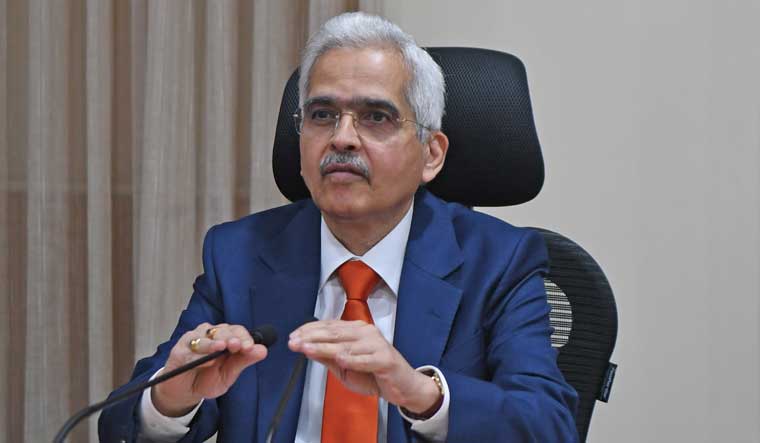Retail inflation has been trending above 6 per cent, the upper end of the Reserve Bank of India’s 2-6 per cent inflation target band, for three straight quarters now. The central bank began tightening interest rates in May when it held an unscheduled monetary policy committee meeting. Overall since the RBI has raised the benchmark repo rate by 190 basis points.
But, it has been debated and questions have been raised by some, whether the RBI was late to act against high inflation and whether could it have raised interest rates much earlier than May. On Wednesday, Governor Shaktikanta Das defended how the Reserve Bank had acted and said the economy and the citizens would have paid a “high cost” had it acted prematurely on inflation.
“We prevented a complete downward turn of our economy. After recording negative growth in 2020-21, India’s economy bounced back in 2021-22 and sustained in 2022-23 and also next year,” Das said.
He was addressing a gathering of top bankers and industry executives at the annual event organised by the Indian Banks Association and FICCI.
“We didn’t want to upset the process of recovery. We wanted the economy to safely land in the turbulent water through which the economy had been sailing during the period of COVID. We wanted the economy to safely reach the shore and thereafter try and pull down inflation,” he said.
Das said that even in January-February, the central bank’s assessment had shown average inflation to trend around 4.5-5.0 per cent, assuming crude oil at $100. However, the Russian invasion of Ukraine on February 24, completely changed the picture as oil as well as other commodity and food prices shot up within days of the war.
He admitted that in the process, there had been a slippage in RBI’s inflation targeting and the ability to maintain inflation below 6 per cent. But, it (premature tightening) would have been very costly for the economy.
“It would have been very costly for the citizens of this country. We would have paid a high cost,” stressed Das.
The Governor’s public defence of how the RBI acted is significant as it comes just a day ahead of an unscheduled meeting of the monetary policy committee (MPC). The MPC is meeting on November 3, and on the agenda will be drafting an explanation to the government on why RBI failed to meet the inflation target for three straight quarters.
The consumer price index (CPI)-based inflation rose to a five-month high of 7.4 per cent in September. As per law, RBI must provide an explanation to the government on why it had failed to bring the inflation back within the 2-6 per cent target band for three quarters in a row and what measures it had planned to tackle it.
The letter is unlikely to be made public by the RBI and Das said it is a privileged communication between the government and the central bank.
In his speech, the RBI Governor also dealt with the hotly debated topic of the depreciation of the rupee against the Dollar and said that the rupee had rather behaved in an orderly way.
“From April 1 to October 31, the Indian rupee has depreciated by 8 per cent. Over the same period, the US dollar has appreciated by 13 per cent. On a financial year basis, almost all major currencies, barring a few, have depreciated against the US dollar by levels, which are much more than the depreciation we have seen with the rupee,” said Das.
He pointed out that the rupee had appreciated against other major currencies like the Japanese Yen, Chinese yuan, pound sterling and the euro.
The Reserve Bank on Tuesday began the first pilot of the central bank digital currency (CBDC) in the wholesale segment, where nine banks have been permitted to use the e-rupee to settle trades in government securities. According to reports, close to 50 government bond transactions of a total worth about Rs 275 crore were carried out using the digital rupee on the first day of the pilot launch. Das termed the launch a “landmark movement” in the history of the rupee.
He reiterated on Wednesday that the first retail pilot of the digital rupee will be launched later this month. The plan is to try and launch a full-scale CBDC shortly, but, the RBI won’t rush into it, he added.
“This is something we need to proceed very carefully. This is the first time the world is doing it, we don’t want to be in a great hurry. We want to learn from the experiences of the way the pilots are running. There will be some technological challenges, there will be some process challenges. We want to iron out all those aspects and introduce it in a manner that the whole process, the introduction and thereafter is non-disruptive.”




